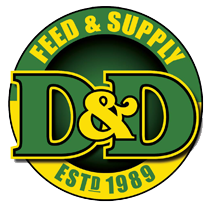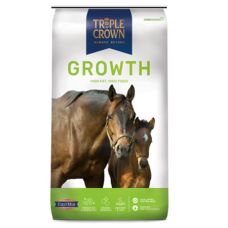Crude Protein (min.) 15.00%
Lysine (min.) 0.90%
Methionine (min.) 0.27%
Threonine (min.) 0.69%
Tryptophan (min.) 0.21%
Leucine (min.) 1.10%
Crude Fat (min.) 10.00%
Crude Fiber (max.) 15.00%
ADF (max.) 17.00%
NDF (max.) 29.00%
Calcium (min.) 1.10%
Calcium (max.) 1.60%
Phosphorus (min.) 0.70%
Magnesium (min.) 0.50%
Potassium (min.) 1.10%
Sodium (min.) 0.40%
Sodium (max.) 0.75%
Salt (min.) 0.30%
Salt(max.) 0.70%
Omega 3 Fatty Acids (min.) 0.60%
Omega 6 Fatty Acids (min.) 3.50%
Selenium (min.) 0.60 ppm
Selenium (max.) 1.50 ppm
Zinc (min.) 250 ppm
Manganese (min.) 150 ppm
Cobalt (min.) 0.50 ppm
Copper (min.) 70 ppm
Iron (min.) 175 ppm
Vitamin A (min.) 8,000 IU/lb
Vitamin D3 (min.) 1,500 IU/lb
Vitamin E (min.) 245 IU/lb
Riboflavin (min.) 4.00 mg/lb
Thiamin (min.) 10.50 mg/lb.
Ascorbic Acid (min.) 65 mg/lb
Biotin (min.) 0.35 mg/lb
Total Direct Fed Microbials (min.) 3.64 billion CFU/lb
Lactobacillus Acidophilus Fermentation Product (min.) 908 million CFU/lb
Enterococcus Faecium Fermentation Product (min.) 908 million CFU/lb
Bacillus Subtillus Dried Fermenttion Product(min.) 26 million CFU/lb
Saccharomyces Cerevisiae Yeast Culture (min.) 1.8 billion CFU/lb
Cellulase* (Trichoderma Longibrachiatum Fermentation Extract) (min.) 0.68 million CU/lb
Protease** (Bacillus Subtilis Fermentation Extract) (min.) 1,430 HUT/lb
NSC***
19.2%
(Free from Restricted Ruminant Protein Products per Title 21, CFR 589.2000/2001)
Dehydrated Alfalfa Meal, Whole Oats, Shredded Beet Pulp, Soybean Hulls, Wheat Middlings, Cane Molasses, Dehulled Soybean Meal, Distillers Dried Grains, Soybean Oil, Whole Roasted Soybeans, Ground Flaxseed, Stabilized Rice Bran, Calcium Carbonate, Monocalcium Phosphate, Dicalcium Phosphate, Magnesium Oxide, Yeast Extract, Yeast Culture, Hydrolyzed Yeast, Dried Enterococcus Faecium Fermentation Product, Dried Lactobacillus Acidophilus Fermentation Product, Dried Bacillus Subtilis Fermentation Product, Dried Trichoderma Longibrachiatum Fermentation Extract, Dried Bacillus Subtilis Fermentation Extract, Zinc Hydroxy Chloride, Manganese Hydroxy Chloride, Copper Hydroxy Chloride, Vegetable Oil, Butyric Acid, Zinc Oxide, Peppermint Essential Oil, Kelp Meal, Lecithin, Magnesium Proteinate, Selenium Yeast, L-Lysine, DL-methionine, L-Threonine, L-Leucine, Salt, Sodium Bicarbonate, Fenugreek Seed, Anise, Ascorbic Acid (Source of Vitamin C), Niacin Supplement, Biotin, Vitamin A Supplement, Vitamin E Supplement, Thiamine Mononitrate, Beta Carotene, Calcium Pantothenate, Riboflavin Supplement, Pyridoxine Hydrochloride, Vitamin B12 Supplement, Vitamin D3 Supplement, Choline Chloride, Menadione Sodium Bisulfite Complex (Source of Vitamin K Activity), Folic Acid, Hydrated Sodium Calcium Aluminosilicate, Brewers Dried Yeast, Manganese Sulfate, Zinc Sulfate, Copper Sulfate, Cobalt Proteinate, Iron Amino Acid Complex, Ethylenediamine Dihydroiodide,(Propionic Acid, Sodium Benzoate, Potassium Sorbate (Preservatives)).
Dehydrated Alfalfa Meal, Whole Oats, Shredded Beet Pulp, Soybean Hulls, Wheat Middlings, Cane Molasses, Dehulled Soybean Meal, Distillers Dried Grains, Soybean Oil, Whole Roasted Soybeans, Ground Flaxseed, Stabilized Rice Bran, Calcium Carbonate, Monocalcium Phosphate, Dicalcium Phosphate, Magnesium Oxide, Yeast Extract, Yeast Culture, Hydrolyzed Yeast, Dried Enterococcus Faecium Fermentation Product, Dried Lactobacillus Acidophilus Fermentation Product, Dried Bacillus Subtilis Fermentation Product, Dried Trichoderma Longibrachiatum Fermentation Extract, Dried Bacillus Subtilis Fermentation Extract, Zinc Hydroxy Chloride, Manganese Hydroxy Chloride, Copper Hydroxy Chloride, Vegetable Oil, Butyric Acid, Zinc Oxide, Peppermint Essential Oil, Kelp Meal, Lecithin, Magnesium Proteinate, Selenium Yeast, L-Lysine, DL-methionine, L-Threonine, L-Leucine, Salt, Sodium Bicarbonate, Fenugreek Seed, Anise, Ascorbic Acid (Source of Vitamin C), Niacin Supplement, Biotin, Vitamin A Supplement, Vitamin E Supplement, Thiamine Mononitrate, Beta Carotene, Calcium Pantothenate, Riboflavin Supplement, Pyridoxine Hydrochloride, Vitamin B12 Supplement, Vitamin D3 Supplement, Choline Chloride, Menadione Sodium Bisulfite Complex (Source of Vitamin K Activity), Folic Acid, Hydrated Sodium Calcium Aluminosilicate, Brewers Dried Yeast, Manganese Sulfate, Zinc Sulfate, Copper Sulfate, Cobalt Proteinate, Iron Amino Acid Complex, Ethylenediamine Dihydroiodide,(Propionic Acid, Sodium Benzoate, Potassium Sorbate (Preservatives)).
Triple Crown Growth should be fed to growing horses along with free access to good quality pasture and/or hay, fresh clean water and plenty of free exercise. For nursing foals, feed 1% of body weight up to 400 lbs. For weanlings and older, the amount of Triple Crown Growth fed daily should be adjusted to maintain a moderate body condition level. If not sure how much to feed, begin with 6 – 8 pounds per day divided into as many feedings as feasible and then adjust up or down depending upon the needs of the individual horse. If feeding less than 5 pounds of Triple Crown Growth on a regular basis due to easy maintenance of desired body condition then 1/2 to 1 pound per day of Triple Crown 30 Supplement should also be fed in combination with Triple Crown Growth as means to insure adequate mineral and vitamin intakes to support sound growth. For Ponies, feed half of the recommendations listed above for horses.
NOTE: Provide plenty of fresh, clean water at all times. Keep product fresh in cool, dry storage. Examine product daily for mold or insect contamination. DO NOT use product that is old, molded or insect contaminated.
***The following coefficients of variation (cv) can be associated with the carbohydrate analyses. These should reasonably account for both sampling and analytical variation, though as you know, poor sampling can lead to much larger variation. The coefficients of variation (cv) for starch is 10%, WSC is 15% and ESC is 15%. For example, a feed with a WSC value of 10% should be expected to range from 8.5 – 11.5% and a WSC value of 20% to range from 17 – 23%. In addition, there are variables on ingredients between suppliers that could be as much as an additional 5% to 10% per ingredient. Therefore, products, such as TC 30% Supplement potentially would have a smaller variation than TC Lite due to the number of bulk ingredients making up the feed (2 vs. 4).
NOTE: Provide plenty of fresh, clean water at all times. Keep product fresh in cool, dry storage. Examine product daily for mold or insect contamination. DO NOT use product that is old, molded or insect contaminated.
***The following coefficients of variation (cv) can be associated with the carbohydrate analyses. These should reasonably account for both sampling and analytical variation, though as you know, poor sampling can lead to much larger variation. The coefficients of variation (cv) for starch is 10%, WSC is 15% and ESC is 15%. For example, a feed with a WSC value of 10% should be expected to range from 8.5 – 11.5% and a WSC value of 20% to range from 17 – 23%. In addition, there are variables on ingredients between suppliers that could be as much as an additional 5% to 10% per ingredient. Therefore, products, such as TC 30% Supplement potentially would have a smaller variation than TC Lite due to the number of bulk ingredients making up the feed (2 vs. 4).
Triple Crown Growth is fortified to provide essential amino acids, vitamins, minerals, probiotics, enzymes and proteins essential to equine growth. Utilizing the latest research regarding nutritional support for growing horses, Triple Crown Growth provides more calories through quality fiber and fat, reducing the need for elevated levels of carbohydrates, which helps your horse experience a more consistent growth pattern and healthier joints throughout its life.
We strive to give you the best prices and personal service in the business. Call us or stop by our store to learn more about how our friendly staff can help you find the right horse feed and supplies.
Tags: Horse Feed - Textured

